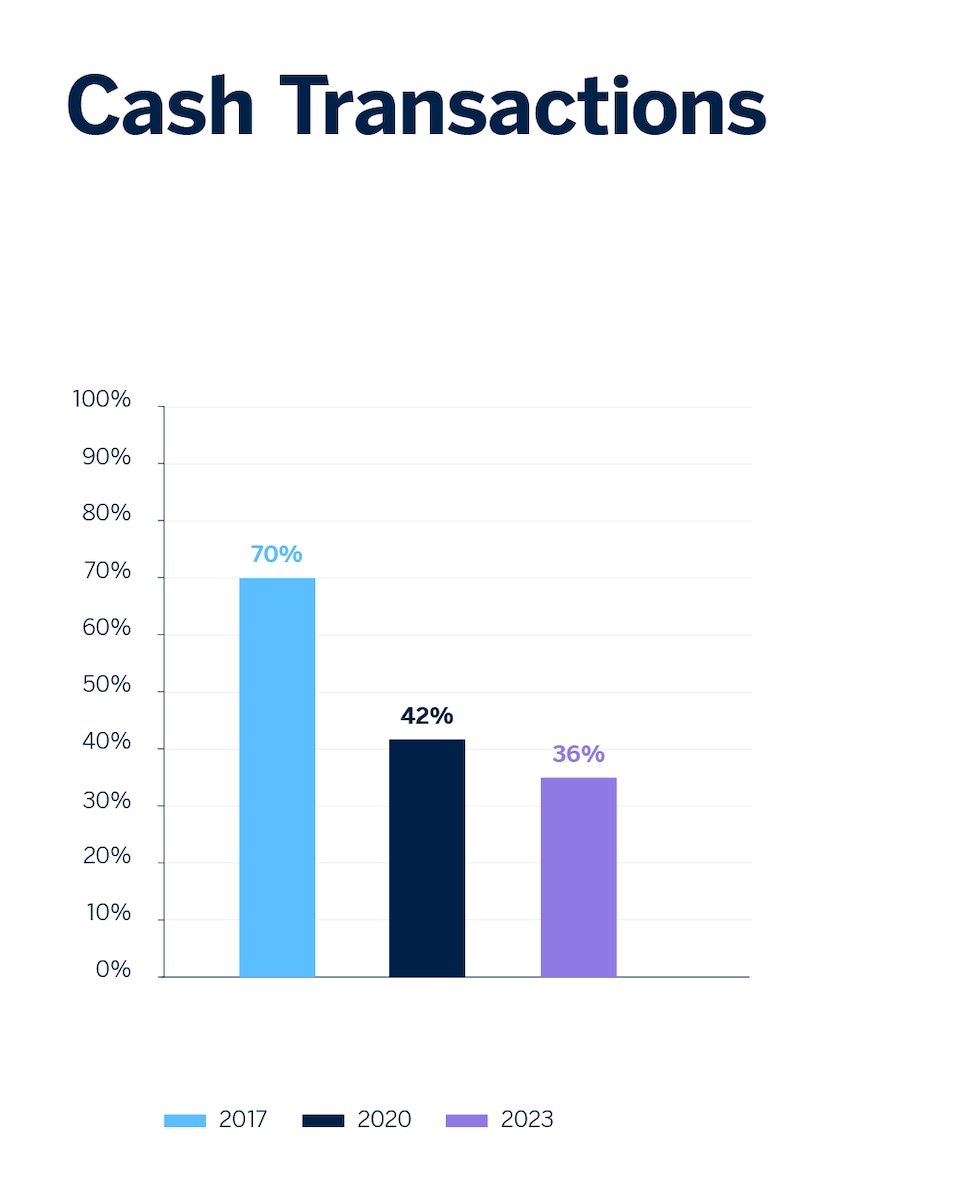In Switzerland, nearly 60% of transactions are made using cards or digital applications. For users, mobile payments provide security, speed and convenience. The country has accelerated the pace in the digitalization of finance, with blockchain emerging as the key technology.
While cash payments remain common, they are becoming increasingly less so. Traditionally regarded as one of the European nations most fond of physical cash, Switzerland is gradually embracing digital payment methods.
A survey by the Swiss National Bank (SNB) revealed that last year, 36% of transactions in Switzerland were conducted in cash. This marks a decline from 42% in 2020 and 70% in 2017. According to last year's data, 33% of transactions were carried out using debit cards, 13% with credit cards, and 11% through mobile payment apps.
The growing acceptance of new digital payment methods is happening alongside an expanding range of services, reflecting a significant shift in how financial transactions are conducted in Switzerland. According to the latest survey by the Swiss National Bank, nearly 60% of businesses in the country accept payments through various mobile applications. This shift is driven by consumer demand, as well as the security, speed, and convenience these payment methods offer.
Beyond everyday payment habits, Switzerland has rapidly advanced the digitalization of its financial sector in recent years. In Switzerland, the future of money is already unfolding.
Mobile money, on the rise
Besides consumer and business preferences favoring mobile payment solutions over options like Google Pay and Apple Pay, one app that exemplifies the rise of mobile payments in the country is Twint. Founded in 2016 and accessible to all banks operating in Switzerland, Twint recorded 590 million transactions last year, according to its own reports. This number is nearly double the transactions processed in 2022.
The popularity of this app is largely due to its ability to combine a wide range of payment features, from transferring money between users to grocery shopping, withdrawing cash, or purchasing insurance. Such mobile super apps, which integrate a variety of financial services, are becoming increasingly common among banks, as demonstrated by BBVA Switzerland.

Towards a digital franc?
Several central banks are exploring—and even implementing—strategies for issuing digital currencies. From December 2023 to June 2024, the Swiss National Bank, in collaboration with six private banks, is running a pilot project to test the issuance of digital francs for financial institutions.
This pilot operates on a financial infrastructure built upon distributed ledger technology. Although the project is quite advanced, the Swiss National Bank emphasizes that it is merely a case study. It should not be interpreted as a declaration of intent or as an initial step toward permanently establishing a digital franc.
Blockchain, beyond cryptocurrencies
If there is one leading technology in the digital revolution of finance, it is blockchain. This distributed and decentralized ledger is the foundation of the Bitcoin ecosystem but also facilitates a shared, public accounting system for any type of transaction. Switzerland is one of the foremost countries championing the blockchain revolution: it has implemented a strategy (Plan ₿) to establish Lugano as the capital of the crypto world, has attracted over 1,000 companies and created 6,000 blockchain-related jobs, and is ahead in regulatory measures.
Private banking is also playing a role in these advances. BBVA Switzerland, for instance, became the first Tier 1 bank in the Eurozone in 2021 to provide cryptocurrency custody and trading services. Additionally, BBVA's digital asset operations are integrated with the Harmonize platform™, from the blockchain company Metaco, which enhances security and flexibility for institutional clients.
Virtual, augmented and mixed reality: finance in the metaverse.
The video game sector continues to be the leading adopter of virtual, augmented, and mixed reality technologies. However, an increasing number of businesses are exploring the commercial opportunities of the metaverse, where cryptocurrencies, tokenized assets, and non-fungible tokens (NFTs) have become standard.
In fact, major financial institutions are investigating how to integrate, manage, and enable financial operations in virtual environments. BBVA, for instance, has set up a customer meeting room and a training space in the metaverse. Other organizations are examining the potential of virtual offices, providing financial advisory services via virtual reality, and even developing new talent acquisition and human resource strategies within the metaverse.
From mobile payments and virtual customer service to digital currencies and the rise of crypto-assets, digitalization is transforming the current and future landscape of money in Switzerland, as well as globally, forever.




